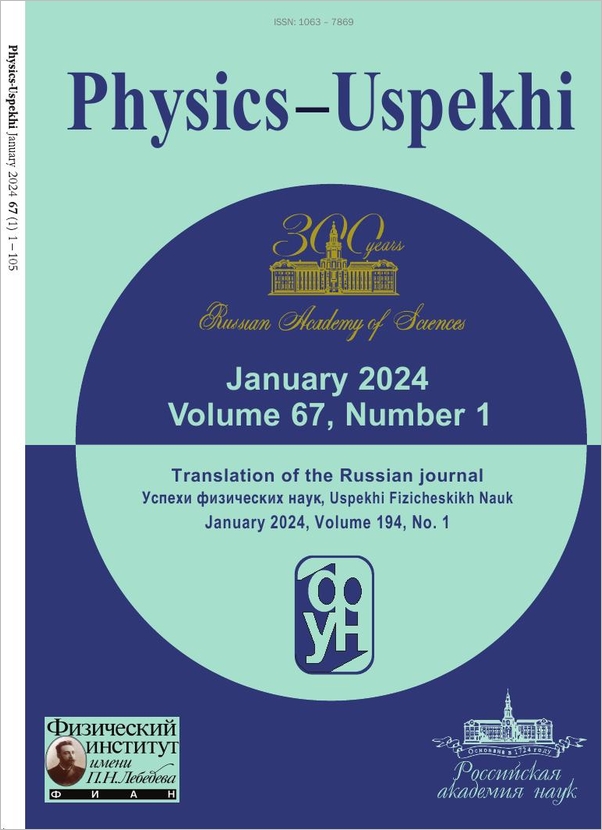|
This article is cited in 2 scientific papers (total in 2 papers)
METHODOLOGICAL NOTES
‘Quantum’ values of the extrema of ‘classical’ macroscopic quantities
V. V. Brazhkin
Vereshchagin Institute for High Pressure Physics, Russian Academy of Sciences
Abstract:
Fundamental constants play an important role in nature. They determine many high-energy processes. It turns out that these constants also set bounds for the ‘ordinary’ properties of condensed matter, such as viscosity, thermal conductivity, elastic moduli, and the speed of sound. Kinematic viscosity has a global minimum point on the $(P, T)$ diagram, and the same is true for the thermal diffusivity of substances (except at the critical point). The minimum values of these quantities are determined only by the Planck constant $\hbar $ and the masses of the electron $m$ and the atom or molecule $ M$. A nontrivial conclusion is that the kinematic viscosity values for ordinary fluids and for quark–gluon plasma are close to each other. Similarly, the extrema of the elastic characteristics of substances, the mechanical properties of materials, and the speed of sound are also determined only by the Planck constant, the masses of the electron and ions, and the electron charge. The use of fundamental constants allows proposing reasonable estimates for the speed of sound of substances and the elastic characteristics of low-dimensional systems. We also note a possible connection between extreme values of macroscopic quantities and the anthropic principle.
Received: July 29, 2022
Revised: November 9, 2022
Accepted: November 10, 2022
Citation:
V. V. Brazhkin, “‘Quantum’ values of the extrema of ‘classical’ macroscopic quantities”, UFN, 193:11 (2023), 1227–1236; Phys. Usp., 66:11 (2023), 1154–1163
Linking options:
https://www.mathnet.ru/eng/ufn15527 https://www.mathnet.ru/eng/ufn/v193/i11/p1227
|


| Statistics & downloads: |
| Abstract page: | 175 | | Full-text PDF : | 19 | | References: | 31 | | First page: | 11 |
|





 Contact us:
Contact us: Terms of Use
Terms of Use
 Registration to the website
Registration to the website Logotypes
Logotypes








 Citation in format
Citation in format 
